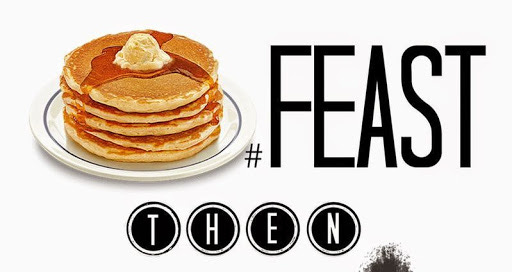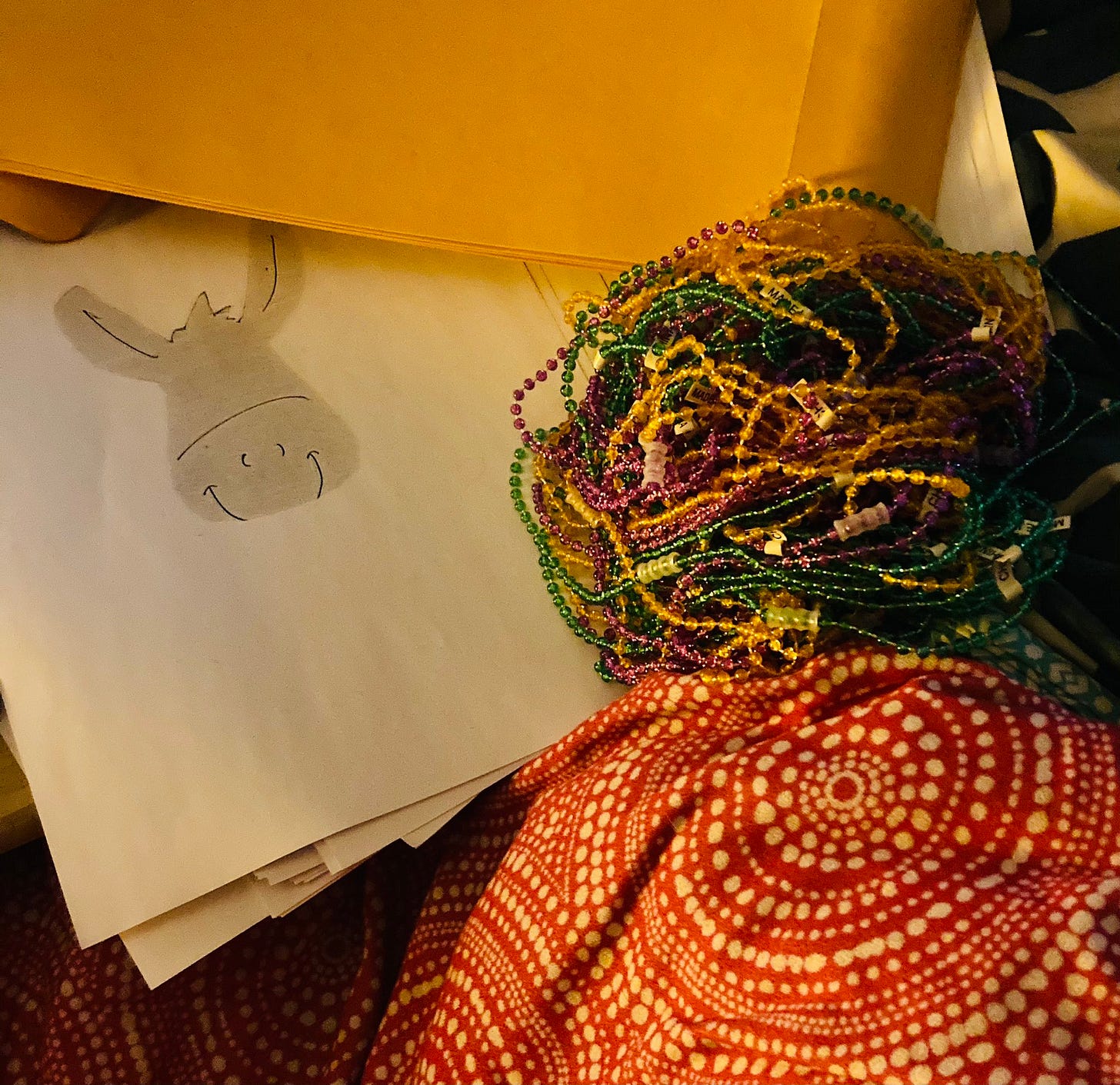Dear Friends,
As I write to you, we’re a week away from Ash Wednesday, which means I’m knee deep in program supplies. I’ve got coloring sheets and paper bags and Mardi Gras beads and cutouts of donkey heads. And all of this leads up to the most serious days in the Church Year – Ash Wednesday and, a few weeks later, Holy Week. So, how do we talk about those days with children when so many adults are afraid of the things they represent?
We have to start at the beginning.
In other words, before we try to make sense of Ash Wednesday, we need to spend some time with Shrove Tuesday or Mardi Gras.
Historically, Christians celebrated Shrove Tuesday or Mardi Grad with elaborate meals meant to use up the remaining rich foods in the house, the foods they would be fasting from during Lent. Anglicans, in particular, deemed this day pancake day, with some saying the core ingredients of pancakes represented the important traits of the coming Lent -
Eggs for Creation
Flour for The staff of life
Salt for Wholesomeness
Milk for Purity
Of course, these great meals are about more than clearing the cupboards. It’s also about emotional readiness. If we’re going to enter a time of self-denial and repentance, it can help to ground ourselves in the bodily, in our human hungers. We celebrate, yes, but then we stop and reflect. It’s also a good day to get younger children ready for the very serious things that come next – to have those big talks over pancakes. Take this time to make Alleluia signage and bury or hide it until Easter (there’s a lot of snow here, so I’m not burying anything!). More of our serious conversations should take place that way.
Now, on to the scary stuff.
This year, the liturgy of Ash Wednesday is likely to hit closer to home for many of us than it usually does. Young children who might not usually have much of a framework for death may feel its nearness after a year trying to avoid infection, making sense of our world amid a pandemic. So when we say, “Remember that you are Dust and to Dust you shall Return,” our proximity to that dust is a little different. It doesn’t have to be scary, though.
Borrowing from Godly Play-style storytelling for Ash Wednesday, this is how I’m talking to my community about this very serious ritual:
During the Ash Wednesday service we begin to get ready for the Great Mystery of Easter. Usually, we go to Church and when we are there we can receive a special blessing. It goes like this:
"Remember that you are dust, and to dust you shall return."
Just like we are marked with a cross when we are baptized, we also receive a cross during this blessing. This cross is made of ashes. We hear and see these words and receive the ashes in the shape of a cross, to remind us that in death there is also hope because of God’s love.
The ashes also help us remember that we all sin, we all make mistakes, and need God’s love and forgiveness.
And God always forgives.
When we hear these words and see the mark of the cross on our heads, we can remember that, all our lives long, and even after, we belong to God.
This year, when we cannot gather in person for the imposition of ashes, is also the perfect time to make your own and demystify the process – and it’s easy to do.
For DIY Ashes
1.Put old palms, a few sticks or even a few wooden matches in a metal or ceramic container and burn them Always do this outside or in a fireplace with an adult.
2.Once the ashes have cooled, spread them on a tray or plate and crush them with the back of a spoon.
3.Sift the ash through a tea strainer and put the ash dust in a little baggie or a container.
4.You can use the this way or add a little olive oil to them to make them easier to apply.
5.If you have any ashes left over, you can spread them on the ground outside.
You can take turns offering each other the ashes, saying the words, “Remember that you are Dust and to Dust you shall Return.”
There is celebration in the serious and seriousness in all celebration. But when we have more of our conversations over pancakes, maybe we’ll find it a little easier to say the hard stuff.
Peace - From The Mess,
Bird






Hi Bird, Thank you so much for your thoughts about talking with children about ashes and what they represent.
Blessings,
Tom